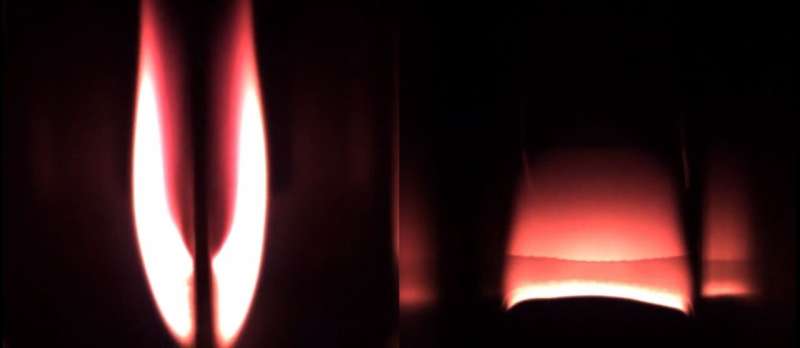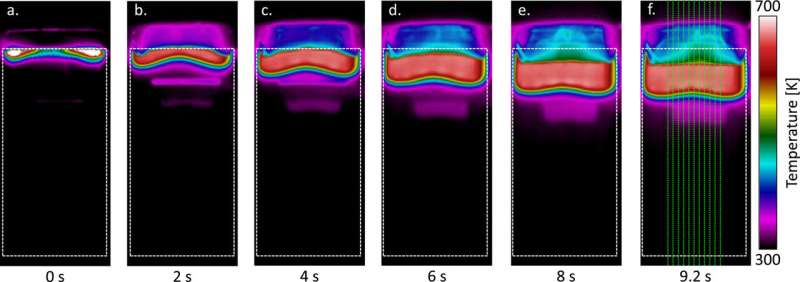
JULY 16, 2024 by Birgit Kinkeldey, Zentrum für angewandte Raumfahrttechnologie und Mikrogravitation (ZARM)
Collected at: https://phys.org/news/2024-07-future-space-missions.html
A research team from the Center of Applied Space Technology and Microgravity (ZARM) at the University of Bremen has investigated the risk of fire on spacecraft in a recent study. The results show that fires on planned exploration missions, such as a flight to Mars, could spread significantly faster than, for example, on the International Space Station (ISS). This is due to the planned adjustment to a lower ambient pressure on spacecraft.
“A fire on board a spacecraft is one of the most dangerous scenarios in space missions,” explains Dr. Florian Meyer, head of the Combustion Technology research group at ZARM. “There are hardly any options for getting to a safe place or escaping from a spacecraft. It is therefore crucial to understand the behavior of fires under these special conditions.”
The ZARM research team has been conducting experiments on the propagation of fires in reduced gravity since 2016. The environmental conditions are similar to those on the ISS—with an oxygen level in the breathing air and an ambient pressure similar to that on Earth, as well as forced air circulation. These earlier experiments have shown that flames behave completely differently in weightlessness than on Earth.
A fire burns with a smaller flame and spreads more slowly, which means it can go unnoticed for a long time. However, it burns hotter and can therefore also ignite materials that are basically non-flammable on Earth. In addition, incomplete combustion can produce more toxic gases.
Oxygen and air flow as fire boosters
Future space missions are currently being planned with modified atmospheric conditions. The crew will be exposed to lower pressure. This offers two crucial advantages: The astronauts can prepare for an external mission more quickly and the spacecraft can be built lighter, i.e. with less mass, which saves fuel. The disadvantage: at lower pressure, the crew needs a higher proportion of oxygen in the breathing air—and this can have dangerous consequences in the event of a fire.
We know from various everyday situations that the speed of the air flow also has a strong influence on the spread of fire, from lighting barbecue charcoal to fighting wild fires.
The current series of experiments on which the study is based was carried out under microgravity conditions in the Drop Tower Bremen. Florian Meyer and his team observed the propagation of flames after lighting acrylic glass foils and investigated how the fire reacts when one of the three parameters—ambient pressure, oxygen content and flow velocity—is changed in different proportions.

The results of the experiments are clear: although the lower pressure has a dampening effect, the fire-accelerating effects of the increased oxygen level in the air predominate. Increasing the oxygen level from 21% (as on the ISS) to the planned 35% for future space missions will cause a fire to spread three times faster. This means an enormous increase in the danger to the crew in case of a fire accident.
Dr. Meyer says, “Our results highlight critical factors that need to be considered when developing fire safety protocols for astronautic space missions. By understanding how flames spread under different atmospheric conditions, we can mitigate the risk of fire and improve the safety of the crew.”
More information: Hans-Christoph Ries et al, Effect of oxygen concentration, pressure, and opposed flow velocity on the flame spread along thin PMMA sheets, Proceedings of the Combustion Institute (2024). DOI: 10.1016/j.proci.2024.105358

Leave a Reply